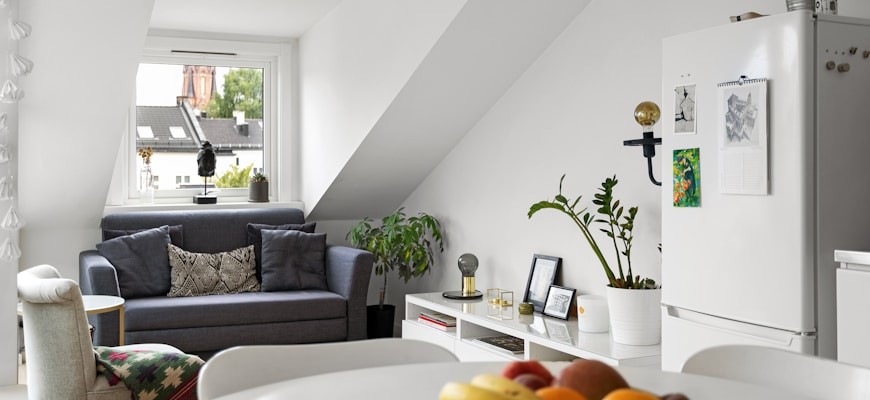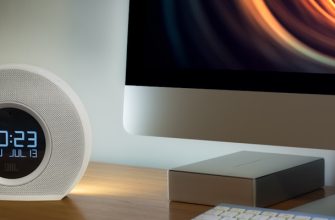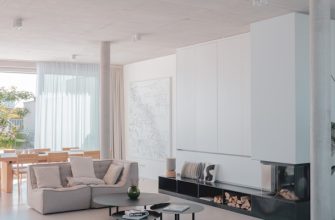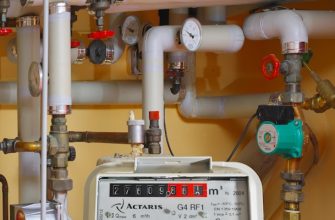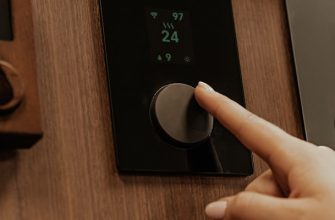- Transforming Your Living Space with Smart Home Technology
- Enhancing Comfort and Convenience in Your Daily Life
- The Future of Home Automation: What You Need to Know
- Smart Home Solutions for Every Lifestyle and Budget
- Integrating Energy Efficiency into Your Smart Home Design
- Creating a Safe and Secure Environment with Smart Technology
Transforming Your Living Space with Smart Home Technology
Transforming living spaces with smart home technology is revolutionizing the way individuals interact with their environments. Smart home systems enable seamless integration of devices, enhancing comfort, security, and energy efficiency. By automating daily tasks, residents can enjoy a higher quality of life while reducing their environmental footprint.
- Enhanced Comfort: Smart thermostats, lighting systems, and automated curtains allow for personalized adjustments, ensuring that every room maintains the ideal atmosphere.
- Improved Security: Smart home technology includes advanced security systems with cameras and motion detectors that can be monitored remotely, providing peace of mind.
- Energy Efficiency: Smart appliances and energy management systems optimize energy use, leading to reduced utility bills and a smaller carbon footprint.
- Convenience: Voice-activated assistants facilitate hands-free control over various home functions, making everyday living more convenient.
Investing in smart home technology not only modernizes living spaces but also provides long-term benefits. Homeowners experience increased property value as smart features become more desirable in the real estate market. Additionally, the integration of these technologies can lead to a more sustainable lifestyle, aligning with the growing emphasis on eco-friendly solutions.
As smart home technology continues to evolve, the potential to further transform living environments is limitless. The convenience of managing various aspects of a home from a single device creates a streamlined experience that enhances overall well-being. Embracing smart home innovations is essential for creating a comfortable and efficient living space.
Enhancing Comfort and Convenience in Your Daily Life
Modern technology has revolutionized the concept of home living, making it more comfortable and convenient than ever before. Smart home systems offer unparalleled ease of use, allowing homeowners to control various aspects of their living environment with a simple touch or voice command. From lighting to temperature regulation, these innovations create a seamless and enjoyable atmosphere.
- Automated Lighting: Smart lighting solutions enable homeowners to adjust brightness and color temperature according to their mood and needs. This not only enhances comfort but also promotes energy efficiency.
- Temperature Control: Smart thermostats learn user preferences and adjust heating and cooling systems automatically, ensuring optimal comfort while reducing energy consumption.
- Security Features: With smart surveillance cameras and alarm systems, residents can monitor their homes remotely, enhancing safety and peace of mind.
- Voice Assistants: Integrating voice-controlled devices allows for hands-free management of various tasks, from playing music to controlling appliances.
- Smart Appliances: Intelligent kitchen devices streamline cooking and cleaning processes, making daily chores more efficient and less time-consuming.
Overall, the integration of smart home technology transforms everyday living into an experience of enhanced comfort and convenience. By adopting these systems, individuals can enjoy a more streamlined lifestyle, ultimately leading to increased satisfaction within their own spaces. Embracing a smart home not only improves daily routines but also promotes a sustainable way of living through energy-efficient solutions.
The Future of Home Automation: What You Need to Know
The future of home automation is set to transform everyday living, enhancing comfort, convenience, and efficiency. As technology continues to evolve, the concept of a smart home becomes increasingly accessible and beneficial for homeowners. Understanding the emerging trends in home automation can significantly improve the living experience.
- Integration of AI: Artificial intelligence is playing a crucial role in home automation systems. Smart devices equipped with AI can learn user preferences and adapt to individual lifestyles, making homes more intuitive.
- Energy Efficiency: Future home automation technologies prioritize energy management. Smart thermostats and lighting systems can optimize energy consumption, leading to cost savings and reduced environmental impact.
- Enhanced Security: Home automation systems incorporate advanced security features. Smart cameras, locks, and alarms provide homeowners with real-time monitoring and control, ensuring peace of mind.
- Interconnectivity: The future of home automation emphasizes seamless connectivity between devices. Smart hubs can unify various systems, allowing for streamlined control and automation across the home.
- Voice Control: Voice-activated assistants are revolutionizing how people interact with their smart homes. With simple voice commands, users can manage tasks, adjust settings, and access information effortlessly.
As these trends continue to shape the landscape of home automation, homeowners are encouraged to stay informed about technological advancements. Embracing smart home solutions not only enhances daily living but also prepares homes for a more connected future.
Smart Home Solutions for Every Lifestyle and Budget
Integrating smart home technology into daily life has become increasingly accessible, catering to various lifestyles and budgets. Smart home solutions offer a harmonious blend of convenience, security, and energy efficiency, making homes not just smarter but also more enjoyable. By adopting these advanced systems, residents can experience enhanced comfort while also managing their household expenses effectively.
- Smart Lighting: Automated lighting systems allow users to control lighting remotely, set schedules, and customize ambiance, promoting energy savings and enhancing the home environment.
- Smart Security: Home security solutions, including cameras and smart locks, provide peace of mind by enabling real-time monitoring and alerts, ensuring safety for every household.
- Smart Thermostats: These devices optimize heating and cooling by learning user preferences and adjusting settings accordingly, significantly reducing energy bills.
- Smart Appliances: From refrigerators to washing machines, smart appliances enhance efficiency and convenience, allowing users to manage their chores remotely through mobile applications.
- Voice Assistants: Integrating voice-activated systems streamlines control of various smart devices, enabling hands-free management and enhancing user interaction with technology.
Choosing the right smart home solutions involves considering individual needs and budget constraints. Several packages and products are available, ranging from basic setups to comprehensive systems encompassing various smart technologies. Investing in smart home devices not only elevates living standards but also contributes to sustainable living through energy-efficient practices.
To maximize the benefits of smart home technologies, it is essential to evaluate the compatibility of devices and systems. This ensures seamless integration and functionality across the entire home. By selecting the appropriate smart home solutions, residents can enjoy a lifestyle characterized by comfort, security, and modern convenience.
Integrating Energy Efficiency into Your Smart Home Design
Integrating energy efficiency into smart home design is essential for creating a sustainable and comfortable living environment. Modern smart homes leverage cutting-edge technology to enhance energy management, leading to reduced utility bills and a lower carbon footprint. By utilizing smart devices and systems, homeowners can optimize their energy consumption, ensuring that resources are used judiciously.
- Smart Thermostats: These devices learn user habits and adjust heating and cooling systems accordingly, significantly improving energy efficiency.
- Energy-Efficient Appliances: Incorporating appliances with high energy ratings helps to minimize energy usage without sacrificing performance.
- Smart Lighting: Utilizing LED bulbs and smart lighting systems allows for automated schedules, ensuring lights are only on when needed.
- Home Energy Management Systems (HEMS): These systems provide real-time data on energy consumption, enabling informed decisions to reduce waste.
- Solar Panels: Integrating solar technology can drastically lower dependence on grid electricity, enhancing overall energy efficiency.
When designing a smart home, it is crucial to consider the integration of these energy-efficient solutions from the outset. This proactive approach not only maximizes the benefits of smart technology but also contributes to a more eco-friendly lifestyle. The combination of intelligent devices and energy-efficient practices fosters a harmonious balance between comfort and environmental responsibility.
As the demand for sustainable living increases, the importance of energy-efficient smart home design cannot be overstated. Homeowners are encouraged to explore the various options available to them, ensuring that their living spaces are not only technologically advanced but also environmentally conscious.
Creating a Safe and Secure Environment with Smart Technology
Creating a safe and secure environment is one of the primary benefits of implementing smart technology in a home. Smart home systems integrate various devices and applications that enhance security while providing convenience. These systems utilize advanced sensors, cameras, and alarms, allowing homeowners to monitor their properties remotely.
- Smart Security Cameras: These devices offer real-time monitoring and alerts, ensuring that any unusual activity is immediately reported to the homeowner.
- Smart Locks: These locks provide keyless entry and can be controlled via smartphones, allowing users to grant access to guests without being physically present.
- Smart Sensors: Motion detectors and door/window sensors can trigger alarms or send notifications when unauthorized access is detected.
- Home Automation Systems: Integrating various smart devices allows for a cohesive security approach, where lights, cameras, and alarms work together to create a comprehensive safety network.
- Remote Monitoring: Homeowners can check on their property anytime and from anywhere using mobile applications, enhancing peace of mind.
Incorporating these smart technologies not only increases security but also contributes to energy efficiency and convenience. For example, smart lighting can be programmed to simulate occupancy, further deterring potential intruders. Additionally, many smart home devices are compatible with voice assistants, allowing users to control their security systems effortlessly.
As technology continues to evolve, the integration of smart devices in residential settings will only become more sophisticated, providing homeowners with innovative solutions to ensure their safety and comfort. Investing in a smart home ecosystem is a proactive approach to creating a secure living environment that adapts to the needs of its residents.
